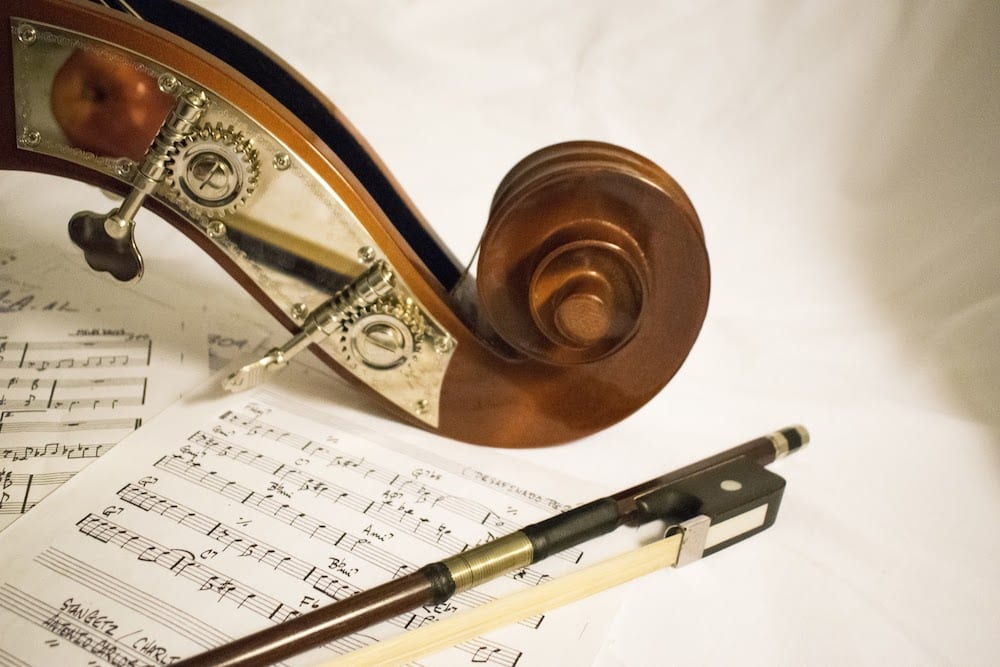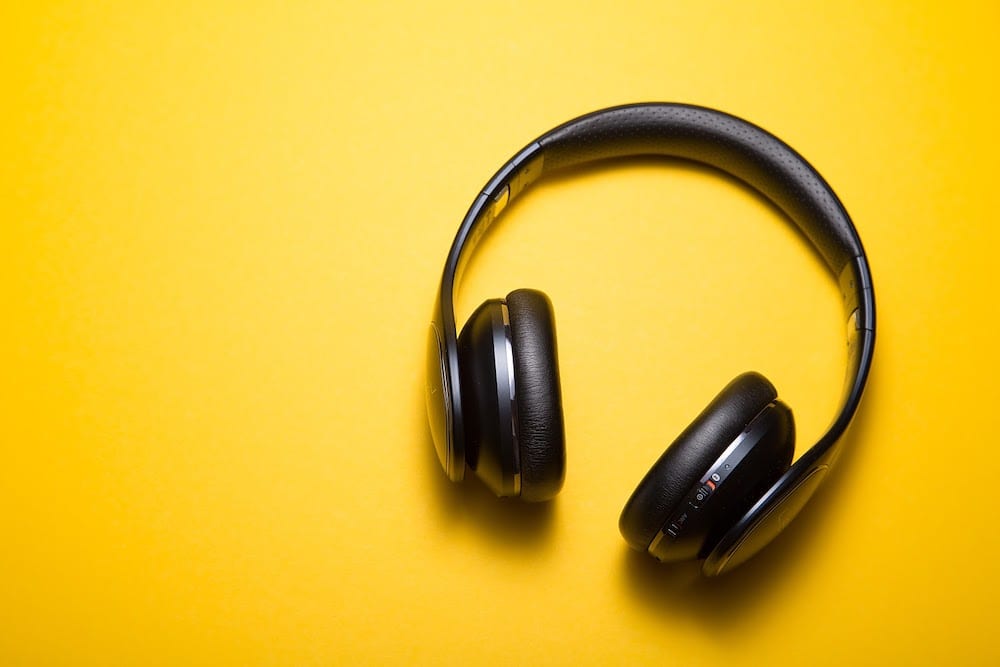Sounds are everywhere in our world—the sound of cars on your street, the sound of birds, of rain falling on your roof. A bachelor of music teaches students to use sound as an art form by combining sounds, vibrations, and silence to express feelings and ideas.
A bachelor of music program is a wonderful way to gain more technical knowledge, performance experience, and begin networking with music industry professionals. Music majors can choose between a bachelor of music (BM), bachelor of liberal arts (BLA), bachelor of arts (BA), or a bachelor of science (BS).
This article will explain the types of music degrees you can pursue and showcase the best bachelor of music programs. Keep reading to discover which of these degrees is right for you and where to apply for the best music education.
What Is a Bachelor of Music?
To begin, defining music with the written word is nearly impossible. The best description of music comes from musicians, such as the great Jazz composer John Coltrane. To quote Coltrane’s thoughts on his music: “My music is the spiritual expression of what I am—my faith, my knowledge, my being.”
If music also feels like your form of expression, then take a look at the different types of music degrees you can pursue.
Bachelor of Fine Arts or Bachelor of Music
The BM and BFA degrees are four-year programs that rigorously prepare students to enter the music industry as musicians. Typically, students learn a range of instruments and vocal techniques. These degrees are for students who love the creation and the performance side of music.
Bachelor of Arts in Music
A Bachelor of Arts in Music offers students more flexibility and opportunity to learn more than just music itself. This degree better equips students with the skills to work in various other fields within and outside of music. The BA degree typically focuses less on performance and more on theoretical and historical aspects of music.
Bachelor of Science in Music
If you wish to enroll in a program that focuses more on the music business, then a BS in Music is a great option. The BS music degree program is like the BA in that it typically does not provide students with performance skills.
Bachelor of Music Education
As a BME graduate, you will gain a career as a professional vocal and music teacher. A music education major teaches students the techniques to play or sing professionally, and how to educate others to do so as well.
Best Bachelor of Music Programs

For this list, we have gathered schools that range from public to private, contemporary to classical music programs, and range in tuition costs. Here are Career Karma’s best music schools and their music courses:
Indiana University
Bloomington, IN
Programs Offered:
BS in Audio Engineering and Sound Production
Undergraduate Certificate in Music Scoring for Visual Media
The list of undergraduate degree programs is extensive at Indiana University’s Jacob School of Music. The school allows students to play in local orchestras and also features the Musical Arts Centre, which boasts a 1,460-seat auditorium. The school also offers well-rounded features, like a fitness and wellness program for those classically trained. Bloomington is also home to many record labels that host yearly music festivals.
Columbia College
Chicago, IL
Programs Offered:
BA/ BM in Contemporary, Urban, and Popular Music
BA/ BM in Composition and Production
Columbia College Chicago offers students insights into genre, creation, performance, recording, and contemporary compositional technology and techniques. It has various courses for students interested in music and students can progress from a BA and audition for the BM course in the third or fourth semester.
The Curtis Institute of Music
Philadelphia, PA

"Career Karma entered my life when I needed it most and quickly helped me match with a bootcamp. Two months after graduating, I found my dream job that aligned with my values and goals in life!"
Venus, Software Engineer at Rockbot
Programs Offered:
BM in Nina Von Maltzahn String Quartet
The Curtis Institute of Music provides students with three years of training in its bachelor, master’s, and even its certificate programs. What’s more, the tuition is completely free. This is because they provide full-tuition scholarships to successful students who are accepted.
This means the audition process may be more grueling than most schools, with admission rates below five percent. However, admitted students will receive a top-rated music education while they pursue vocal studies, guitar, conducting, the harp, woodwinds, strings, and much more.
Berklee College of Music
Boston, MA
Programs Offered:
BM in Music Production and Engineering
Berklee’s bachelor of music program offers a great range of programs focused predominantly on music with some study in the liberal arts. While studying for a diploma, students can switch to a degree program and even choose a double majors option, which takes five years to complete.
The University of Southern California
Los Angeles, CA
Programs Offered:
BM in Performance (Vocal Arts and Opera)
BM in Music Production (Music Technology)
BM in Double Bass Performance (Strings)
USC’s Thornton School of Music is ranked in the top one percent of national music schools. It has world-class programs across many musical departments. Students will learn about the music industry, composition, vocals, and film and television scoring.
The University of North Texas
Denton, TX
Programs Offered:
BM in General, Choral and Instrumental Music
With more than 1,600 K-12 music staff, UNT’s College of Music is a great choice. Not only is UNT inexpensive in comparison to other schools, but it also offers an extensive range of programs and is one of the larger public schools on this list.
Northwestern University
Evanston, IL
Programs Offered:
BM in Music Studies (Composition)
BM in Music Studies (Musicology)
BM in Music Studies (Music Cognition)
NU’s Bienen School of Music offers two main BM’s in Performance and Music Studies, with many specialization options. It is nationally ranked and has one of the most incredible recital halls that seats 989 audience members.
Other Music-Related Degree Options
If choosing one of the above degrees does not seem like the right fit for you, there are other music-related degree options for you to consider. Let’s now explore some related degrees in music for those interested in specialized music fields.
Music Therapy
A music therapy bachelor’s degree program teaches students to use technical music knowledge to help those in need of physical, cognitive, or emotional therapy. It is a common misconception that students require a music degree and then a psychology minor to enter this career field.
Graduates will generally work in hospitals or special needs clinics to help people with recovery, combining health and music professions into one neat package. Students will need to pass the MT-BC exam (Music Therapy Board Certification), accredited by the Certification Board of Music Therapists (CBMT), before securing their first job.
Music Technology
Music technology focuses on the computer software and technology side of music. Gaining a Bachelor’s Degree in Music Technology allows students to use recording technology and computerized special effects. Graduates can look forward to a whole host of careers in music production, the most prominent as a music producer.
Applied Music
Applied music is generally within a bachelor of music degree and relates to music performance. Students can typically learn a range of instruments, including vocals, to help them pursue a career as a musician.
Is a Bachelor of Music For You?

Whichever music degree you decide to pursue, an exciting career path full of possibilities is ahead of you. The ability to create sounds that cause others to feel the full range of human emotions is genuinely fascinating.
According to the Strategic National Arts Alumni Project (SNAAP) survey, 62 percent of music performance majors work as professional music artists.
Due to social distancing, the pandemic is causing a considerable halt to the music industry. However, music is still a huge industry that is now shifting to online subscriptions and gigs. Statistics show that 42.7 million people are paying to see musicians online in 2020, a 50.4 percent increase.
So, if you’re interested in a career in the music industry, you can rest assured that you will still find work in the years ahead as the industry continues to adapt to the times.
About us: Career Karma is a platform designed to help job seekers find, research, and connect with job training programs to advance their careers. Learn about the CK publication.
